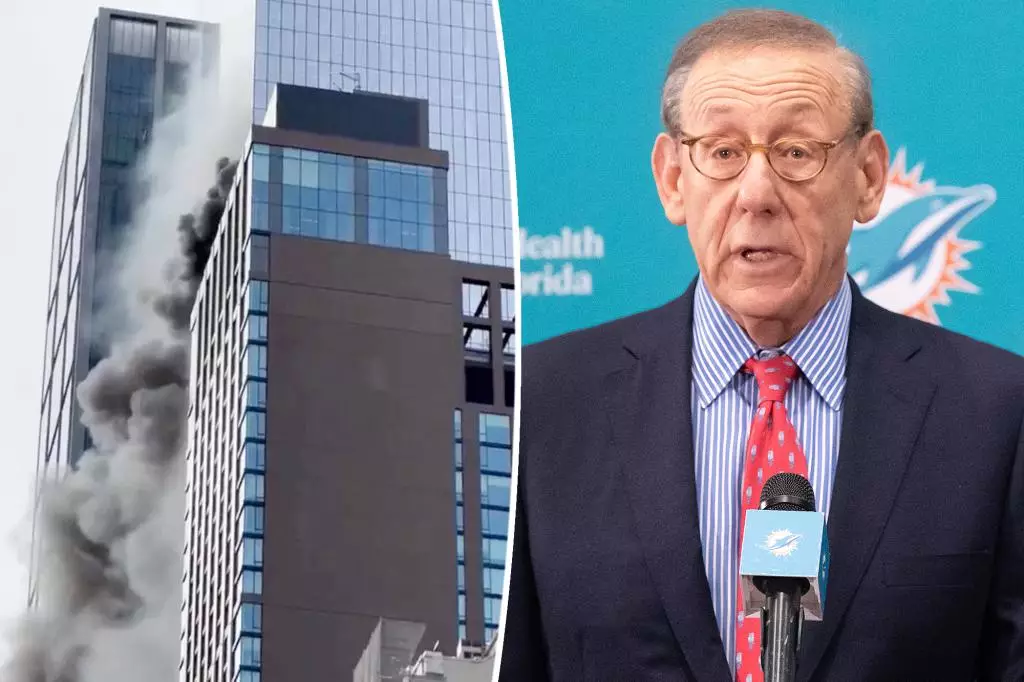In a recent incident that has ignited considerable attention, the Set apartment building in Hudson Yards confronted a significant fire emergency, leading to fallout within its management. This ultra-luxury residence, which boasts amenities likened to a high-end hotel combined with modern tech-inspired workplaces, found itself shrouded in thick black smoke last Thursday. The repercussions of this escalation have not only highlighted the operational flaws within the building’s management but also raised questions regarding the safety protocols practiced in high-end residential environments.
The fire, which emerged around 11 AM during routine maintenance of the building’s cooling tower, quickly transformed from a procedural mishap into a speedy emergency response situation. Approximately 80 firefighters arrived to tackle the flames, effectively extinguishing them without reported injuries or significant residual damage. While the incident was managed promptly, it is the communication—or notable lack thereof—during the fire that has sparked criticism from residents and managers alike.
Residents living in the 44-story building were left in the dark quite literally and figuratively during the chaos. As one tenant recounted, the absence of alarms on the lower floors amplified the confusion; many were alerted only when they noticed people in adjacent buildings gazing up in alarm, prompting a wave of anxiety. The failure to adequately notify residents about the ongoing situation raises issues regarding crisis management and the responsibilities of property management in ensuring tenant safety.
The crux of the controversy lies in the management’s communication strategy—or lack thereof. In the days following the fire, residents expressed their frustrations through a group chat, as they seemed to rely on external information rather than official updates. One resident’s statement illustrates the disarray: “People were texting us that a building is on fire in Hudson Yards, and we are like, ‘We know—we are in it!’” This reveals not only the panic that ensued but also the overwhelming disappointment at the management’s delayed response.
In response to the mounting dissatisfaction, the building’s management acknowledged their shortcomings, conceding that chaotic communication fell drastically short during a critical moment. As a corrective measure, they announced the immediate dismissal of the general manager. This decision, although necessary, underscores the precariousness of maintaining luxury standards while ensuring operational efficiency, particularly in high-stakes situations.
The Set brand prides itself on providing a lavish living experience, boasting perks such as concierge services, housekeeping, and high-tech workspace setups. Residents expect more than mere opulence; they anticipate robust safety measures and responsive management capable of navigating crises effectively. This incident starkly contrasts the image of exclusivity and reliability the building aims to portray.
Stephen Ross, the billionaire owner of the Miami Dolphins and head of Related Companies, has championed ambitious projects in Hudson Yards. While the blazing fire may temporarily tarnish the reputation of this standout building, it channels a wider conversation about the responsibilities that accompany such luxuries. Development firms must remember that residents, especially in prestigious accommodations, require assurance in safety alongside lavish amenities.
In light of this significant incident, it is incumbent upon the management and development teams to reevaluate their emergency protocols and communication strategies. Real estate developers who aim to create living spaces that blend luxury with innovation must recognize the importance of crisis preparedness. Ensuring resident safety and clear communication during emergencies should take precedence over all other aspects of property management.
As organizations reflect on this incident, they should prioritize implementing comprehensive safety drills, detailed communication plans, and heightened awareness of residents’ needs in emergencies. The blend of luxury and safety—though not mutually exclusive—requires vigilant oversight to build trust and maintain the high standards expected by today’s upscale tenants. The unfortunate yet educational experience at the Set may ultimately serve as a catalyst for improved operational practices in luxury residential developments across the urban landscape.

Leave a Reply